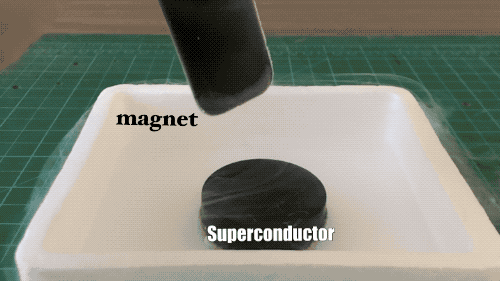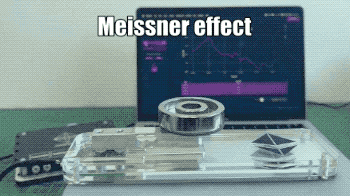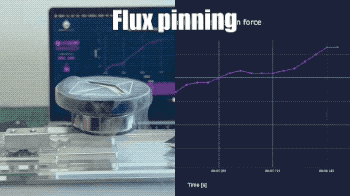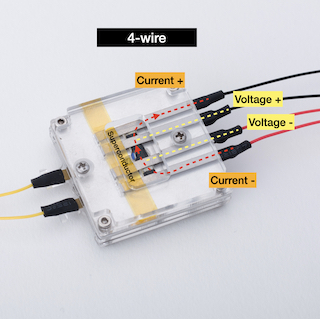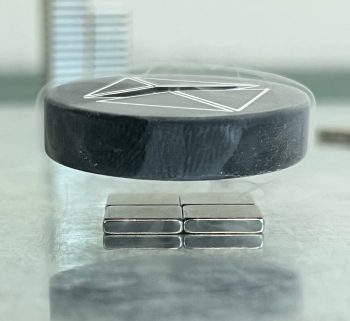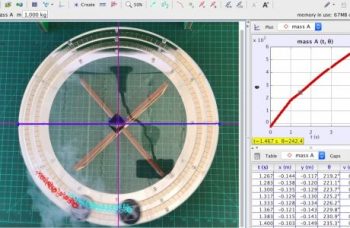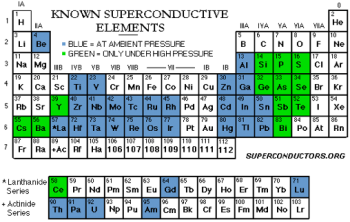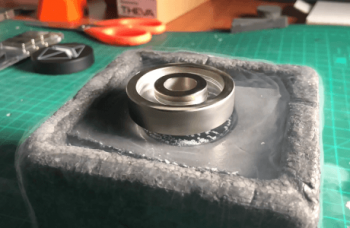Qualitative Experiment steps:
Quantum Levitation is the stable levitation and suspension of a superconductor in a surrounding magnetic field. It is actually the result of two separate phenomena:
- Meissner effect – the repulsion of magnetic fields from the superconductor body
- Flux pinning – the pinning of magnetic flux inside the superconductor
We can perform the following experiments to distinguish between the two –
Meissner effect:
- Take a Quantum Levitator and place it upside down, with the superconductor at the bottom facing up.
- Cool with liquid nitrogen. Make sure not to over fill the nitrogen liquid.
- Take a small magnet (like this) and gently drop it a few inches/cm above the superconductor.
- It will jump right up, being repelled from the superconductor. This is perfect diamagnetism caused by the Meissner effect.
Flux pinning:
- Repeat the same setup with the levitator upside down and cooled.
- This time, push the magnet using plastic tweezers closer to the superconductor. Make sure to push the magnet close enough to feel the resistance.
- Now, when you release the magnet – it stays floating, rotating around its symmetry axis.
Quantitive experiment:
Get actual numbers and analyze the forces – repulsion and attraction, between a superconductor and a magnet. With the Superconductivity Experiment kit you can measure and record the actual forces in different scenarios:
SUPERCONDUCTIVITY EXPERIMENT KIT
-
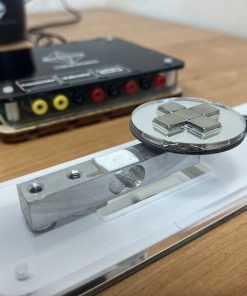 Quantum Levitation Force Experiment$899.00 – $1,149.00
Quantum Levitation Force Experiment$899.00 – $1,149.00 -
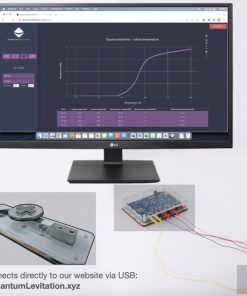 Superconductivity Experiment Kit$1,049.00 – $1,599.00
Superconductivity Experiment Kit$1,049.00 – $1,599.00
